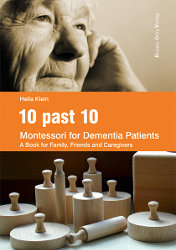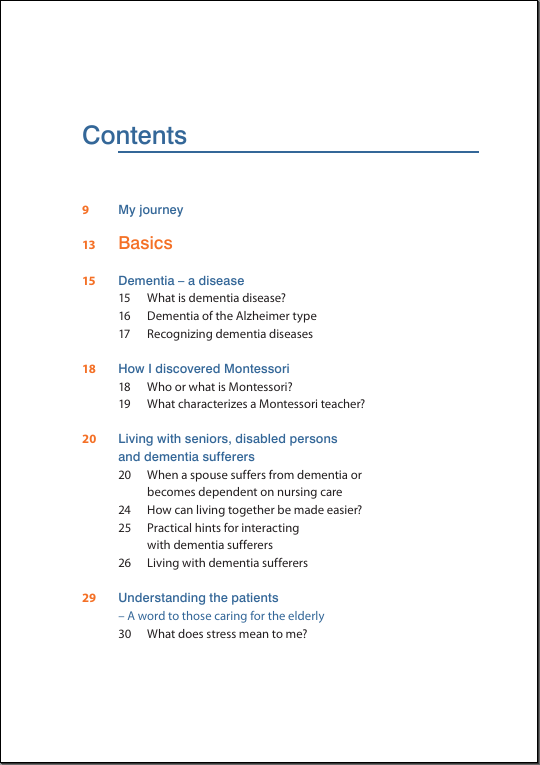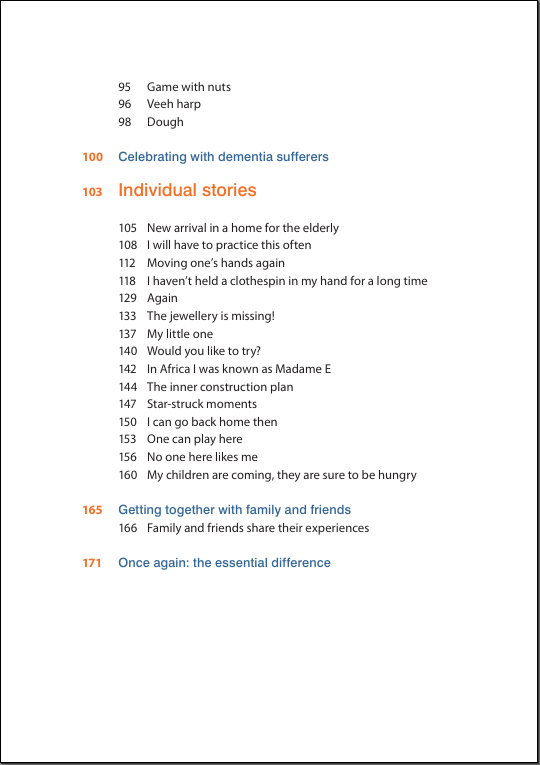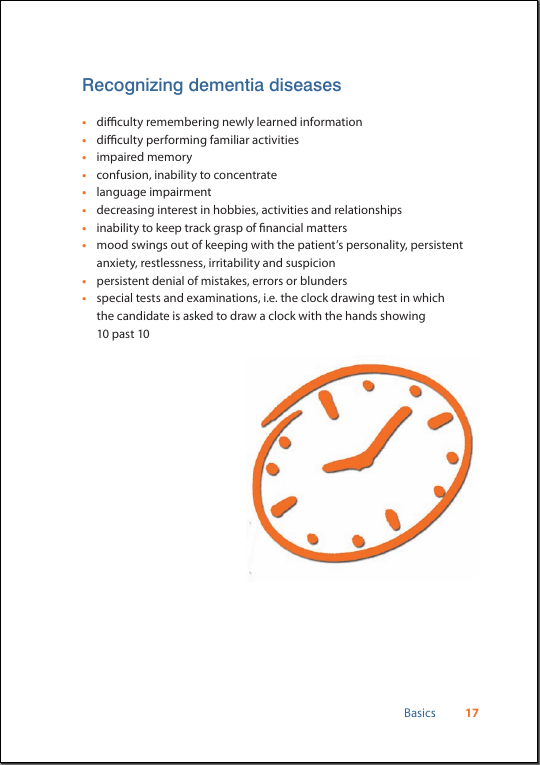 10 past 10 Montessori for Dementia Patients von Hella Klein
10 past 10 Montessori for Dementia Patients von Hella KleinMy husband was diagnosed with dementia seven years before he died. I was not familiar with the disease at the time, not with the initial symptoms, nor its course, nor its end.



Dementia – a disease
What is dementia disease?
Impairment or loss of mental abilities are the main characteristics
of dementia disease. The disease usually begins with short term
memory impairment, later also long term memory content becomes
difficult to retrieve so that victims gradually lose the abilities they
have gained over a long life time (for instance, a spouse is not able
to recognize his/her wife/husband or parents do not recognize their
children).
Dementia disease is not only memory weakness, but behaviour,
perception and a person’s subjective experience are affected, altering
the patient’s whole personality.
There are different forms of dementia. Basically, primary and
secondary forms are differentiated. Secondary forms are usually
consequences of underlying disease, e.g. metabolic disorders,
chronic intoxication such as alcohol or drug abuse and diabetes.
These underlying diseases are to a certain extent curable, so that
a remission of the dementia symptoms may be possible. An early
diagnosis is important in order to begin with the necessary therapy.
Dementia of the Alzheimer type
Alzheimer type dementia is a disease of the brain in which brain cells
progressively perish. No known medical procedure can arrest this
process.
The disease takes a different course in each case. Three stages can
be differentiated, with no clear dividing lines. An almost unnoticeable,
insidious onset is characteristic of Alzheimer type dementia.
Initially, small memory lapses and mood swings may occur. Learning
ability and responsiveness gradually decline, at the same time speech
difficulties develop. The patients use only simple phrases or short words.
Orientation in time and space is lost and the patients may become
increasingly agitated. They realize that something is amiss. Fear and
insecurity take over, the patients close themselves off from everything
new and everything unfamiliar. In this stage the patients are conscious
of the changes taking place inside themselves. Many react with fear and
fits of rage, others become despondent or feel shame.
As the disease progresses the symptoms become more obvious.
Driving or fulfilling work requirements are no longer possible. The
patient needs help accomplishing activities of daily living such as
personal hygiene and eating.
In the late stages the patient is completely dependent on care and
nursing. Conversations are no longer possible, family members are no
longer recognized.
